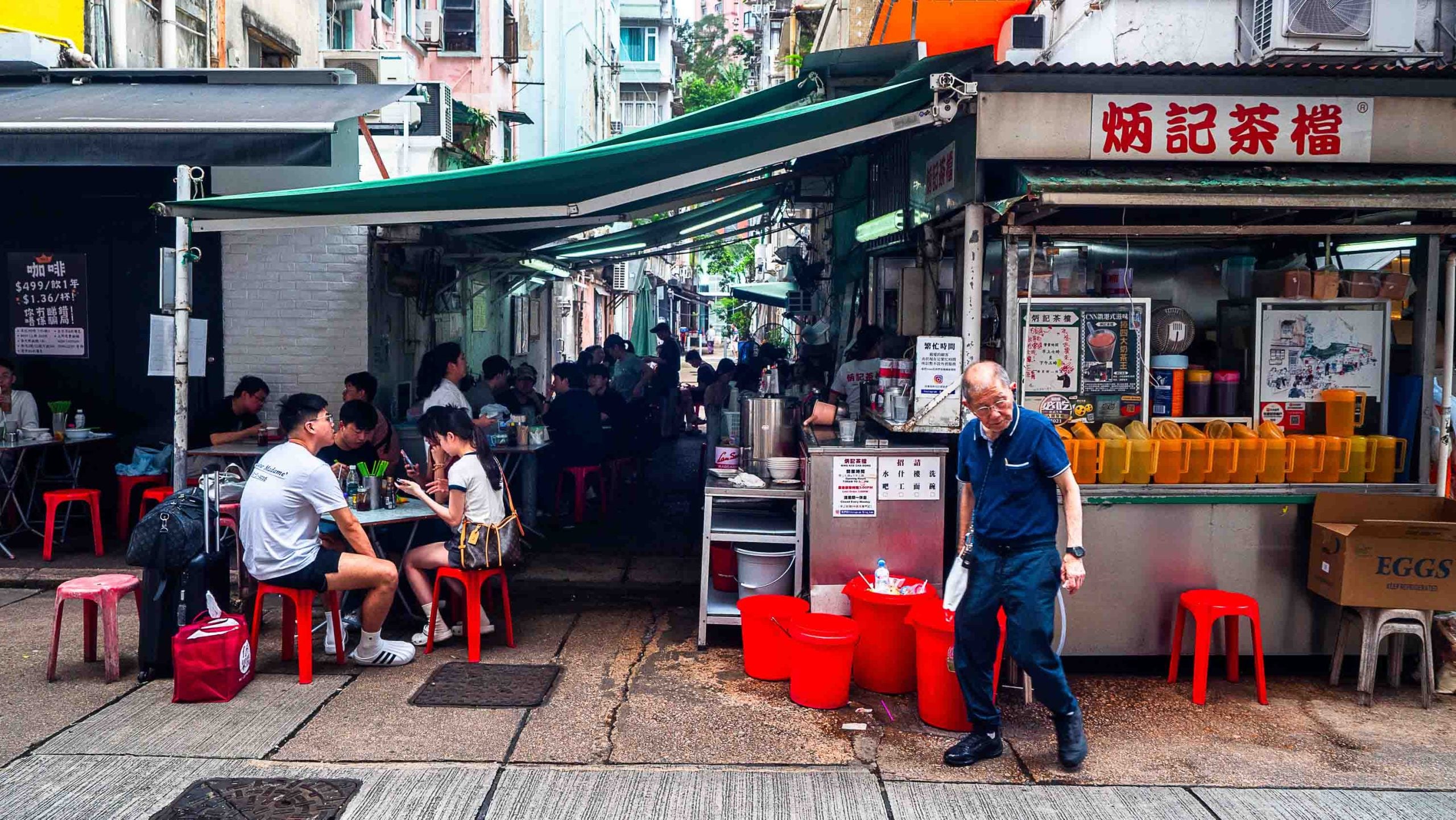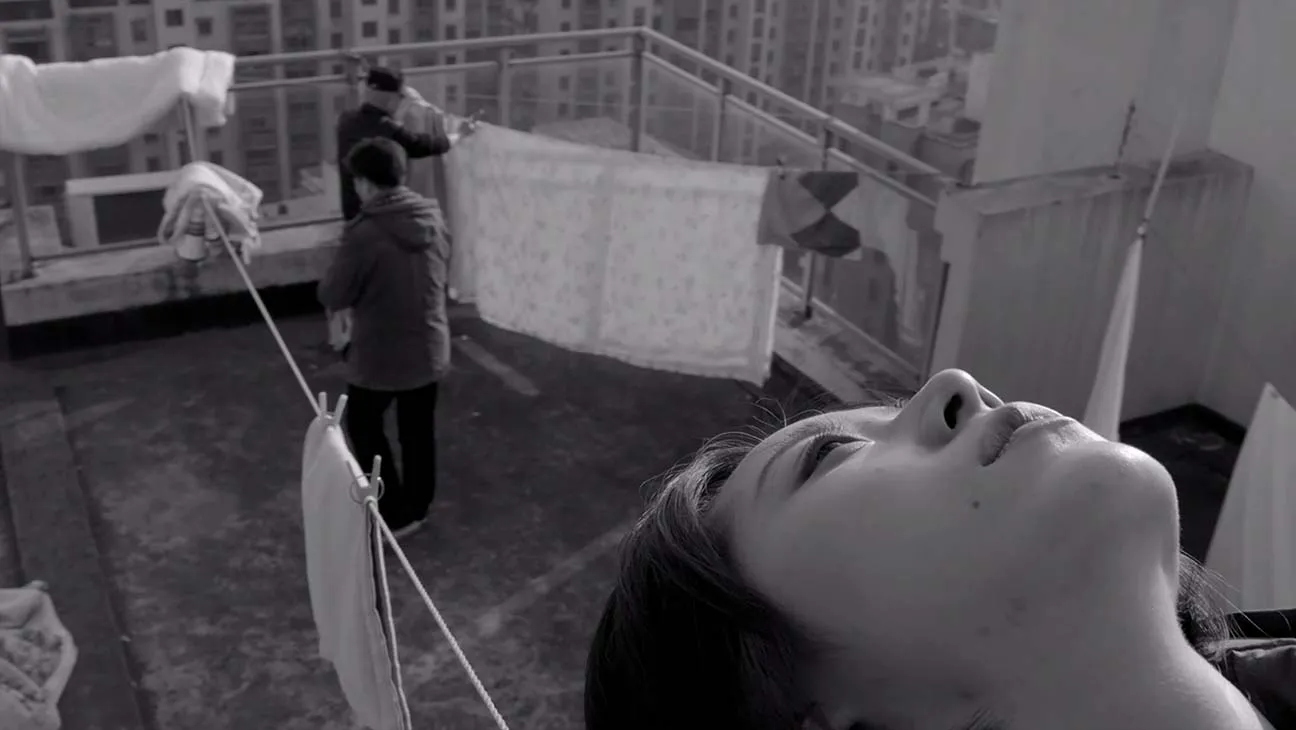Last weekend marked a grim moment in history for gender-based violence in China, as two incidents, which happened two days apart, appalled the nation and caused a public outcry online.
On June 12, a female student (whose name has not been disclosed by authorities) was studying in the library of the Songjiang campus at the Shanghai International Studies University (SISU). When she left her seat to have lunch, Yin Moumou, 21, also a student at SISU, spiked her drink with what was later identified by the local police as an effervescent tablet containing taurine.

A wall emblazoned with SISU’s motto. Image via Wikimedia
The young woman, who immediately noticed the abnormal taste of her drink, poured it away after taking just one sip. She proceeded to report the incident to the school’s security personnel. Thankfully, a medical examination confirmed that she suffered no physical abnormalities, reads a police report.
The student had been fully aware of Yin closely observing her as she drank from the cup, and he even followed her to the toilet, where she disposed of the contaminated drink. Yin later admitted to having purchased the taurine tablets online.
According to the Chinese media outlet The Paper, taurine products are sold in China and serve various purposes. Generally mixed with other chemicals such as caffeine, they can be marketed as fatigue-relieving or sexual stimulants.
On the same day as the unsettling incident at SISU, numerous taurine-based products targeted at women and marketed as enhancing sexual desire were reportedly removed from some domestic ecommerce platforms.

Some taurine-based products have been removed from Chinese e-commerce platforms. Their product packaging suggests that their contents have the means to enhance sexual desire. Image via Weibo
The incident has sparked outrage nationwide, and a related hashtag on the microblogging platform Weibo has amassed more than 1.1 billion views at the time of writing.
Users have flooded the comments section, calling for the incident to be identified as an attempt at drugging for sexually-driven reasons instead of simply tampering with someone’s drink.
A comment, which has been liked over 175,000 times, reads, “To put it briefly: He gave her philter,” while another, which has gained more than 58,000 likes, posits, “Why don’t we regulate the online sale of such products?!”
The SISU spiked drink episode happened just two days after a shocking public assault in the city of Tangshan in North China. On June 10, a group of men viciously attacked four women in a restaurant. Security footage of the upsetting incident has been heavily circulated on domestic and global social media.
In the video, a man is seen approaching a group of women eating at a restaurant. He places a hand on one of the women’s backs, which she shrugs off. Following the rejection, all hell breaks loose, with the man and his companions dragging, punching, and kicking the women for several long minutes.
The graphic footage of the incident, which occurred after 2 AM last Friday, also captures the other customers’ inaction — not a single person in the vicinity lifted a finger to aid the victims.
5 men in Tangshan (唐山), Hebei province, brutally assaulted a woman in a restaurant after she turned down unwanted attention from one of them. The woman suffered serious injuries, and the attack has sparked furious demands to address misogyny in China.
🔻 video – part #1
1/n pic.twitter.com/5ssWohzWEt
— Byron Wan (@Byron_Wan) June 11, 2022
Two of the four women were hospitalized and are now in stable condition. Meanwhile, nine suspects have been arrested in relation to the assault.
A hashtag related to the Tangshan attack has gained more than 1.7 billion views on Weibo, while other hashtags with updates on the investigation have attracted much attention in the ensuing days. Several celebrities and influencers, including Jackie Chan, have spoken up about the incident; the actor said “he couldn’t sleep at night” after watching the footage.
In an effort to keep the attack in the media spotlight, many netizens have continued expressing their outrage online. They are calling for justice in the case and increased awareness of gender-based violence.
Since the incident, footage of police officers patrolling Tangshan’s streets at night has circulated on Chinese social media. However, many netizens have made fun of the measures — which they see as meager.
Netizens have pointed out that although the move might make some feel safer, it barely scratches the surface of a systematic problem that authorities must eradicate.
“Police officers patrolling the night markets does increase the feeling of safety … but we cannot normalize this practice. Police officers work hard … but we should rely on society as a whole to solve this problem,” posted one Weibo user.
Many are using the term ‘butterfly effect’ and even ‘Tangshan effect’ to describe the tidal wave of citizens reporting harassment and beatings in Tangshan and other cities, trying to draw attention to their case.
吃烧烤最安全的日子来了。 pic.twitter.com/g9MAaUtMyy
— bridgeduan (@bridgeduan) June 13, 2022
The violent public attack and stealthy drink spiking, examples of two extremes on the same spectrum, highlight the threats women face in the country, regardless of age, profession, or location.
Many have pointed out that the excellent academic background of the SISU drink spiker did not prevent him from potentially assaulting a fellow female student.
Concurrently, the brutal beating of the Tangshan women disproves two beliefs: That public venues such as restaurants are safe spaces and that women can rely on safety in numbers.
Other recent instances of violence against women in China include a woman filmed chained up in the eastern province of Jiangsu last April and a Tibetan woman burned to death by her ex-husband. The latter of these incidents was disturbingly livestreamed online.
On June 12, the Tangshan government announced the deployment of a special task force dubbed ‘Thunderstorm’ to investigate and fight against criminal activities in the city. On June 15, SISU reportedly expelled Yin Moumou, and his party membership was revoked as a consequence of the drugging attempt.
Cover image via Wikimedia
















